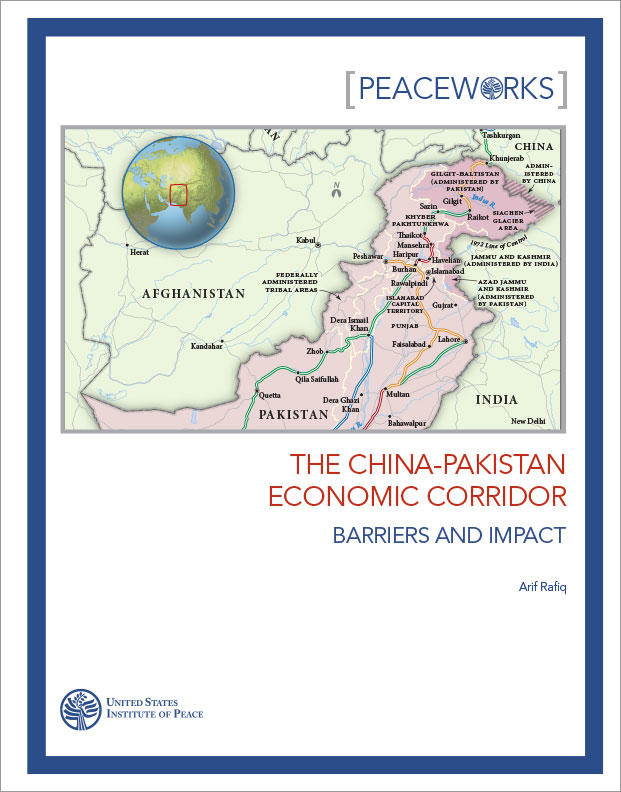Barriers and Impact
The China-Pakistan Economic Corridor (CPEC)—which connects China’s western province of Xinjiang to the Pakistan’s Arabian Sea coastline in Balochistan province—is the first large-scale attempt to bolster economic ties between Beijing and Islamabad, after decades of robust diplomatic and military relations. Based on interviews with federal and provincial government officials in Pakistan, subject-matter experts, a diverse spectrum of civil society activists, politicians, and business community leaders, the report puts CPEC in historical and economic context, identifies challenges to it, and assesses its implications.
Summary
- Support for the China-Pakistan Economic Corridor (CPEC) and Chinese investment in the country is almost unanimous in Pakistan. The country’s political parties and regions, however, have been deeply divided on the subject of equitable distribution of and control over CPEC projects.
- CPEC is a fifteen-year program scheduled for completion in 2030 that will begin to address Pakistan’s energy and infrastructure needs in the near term.
- CPEC could prove an opportunity to decisively overcome the Balochistan insurgency in Pakistan. Doing so, however, means protecting the political rights of the locals and granting economic privileges over migrant labor.
- A broader CPEC authority is necessary to ensure that the project moves forward on a consensus basis. Neither the Pakistani military nor the civilian bureaucracy have the economic and political aptitude to steward the project to success. Such a task is the reserve of the political leadership in Islamabad.
- Policymaking communities in New Delhi and Washington exaggerate the strategic component of CPEC. This may, however, end up being a self-fulfilling prophecy. Pakistan’s primary goal should be to put itself on a trajectory of rapid, equitable, and sustained macroeconomic growth.
- The ultimate benchmarks for the success of CPEC will be whether it boosts industrial productivity, exports, and job creation in Pakistan, putting the country on a path toward sustained, high levels of equitable economic growth.
About the Report
This report clarifies what the China-Pakistan Economic Corridor actually is, identifies potential barriers to its implementation, and assesses its likely economic, sociopolitical, and strategic implications. Based on interviews with federal and provincial government officials in Pakistan, subject-matter experts, a diverse spectrum of civil society activists, politicians, and business community leaders, the report is supported by the Asia Center at the United States Institute of Peace (USIP).
About the Author
Arif Rafiq is president of Vizier Consulting, LLC, a political risk analysis company specializing in the Middle East and South Asia. He is also a nonresident fellow at the Middle East Institute and a fellow at the Center for Global Policy. The author is grateful to Moeed Yusuf, Colin Cookman, and the Asia Center at USIP for their generous support for this research project, and would like to thank the anonymous peer reviewers for their constructive feedback.
